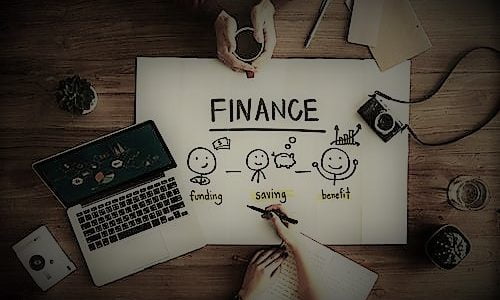Trying to build any type of savings or wealth, simply put, is about making smart decisions. This is a very basic concept by nature which makes it easier to follow; however, it also puts more stress on each decision. Often times it comes down to adjusting one’s own mindset. There are a lot of different money-saving strategies out there. But the biggest thing to remember is that any strategy can be adapted to the individual situation. We had touched upon this in a previous article but will take it one step further. I would recommend adjusting this strategy to living below your means.
Living below your means
It is exactly as it sounds. It can be done one of two ways, either by trying to cut back on actual expenses or by basing your budget off of an income that is 5-10% less than what you actually make. This will likely change aspects of your spending. My usual recommendation is to plan on a change of 10% less than what you are currently making. If you are cutting expenses, when creating your budget, start by trying to reducing your expenses by 5-10%. As pointed out in past articles, this can be done with simple things such as reducing how often you are eating out. It does not have to be huge changes but just something is better than nothing.

If you plan on an income that is less than what you make, you are more likely to save that money. Living below your means goes for any changes in income as well. This is especially true around tax season. Too often, those that get money back from their taxes will end up spending it all within a month. When the taxes come back is a great time to save that for a rainy day rather than a major splurge.
The same goes for if you plan on a larger budget. With a budget that is in the green, where you have a surplus of funds you are more likely to spend it as “extra money”. Framing your mindset that there is no extra money, the only money that doesn’t have a purpose (student loans, car payment or savings); you are more likely to make positive changes financially. As Dave Ramsey recommends, make sure that every dollar is accounted for. If it is not, you will likely overspend without even realizing it. Many savings have been hindered because of this.
Will everyone agree?
No, of course not! Many people out there would argue against this but these are usually those that make a good amount of money. However, these are also the ones that are the most likely to always be on the verge of debt. Just because someone makes a lot of money does not mean they are financially savvy. How many doctors, CEO or lawyers rely on their credit cards to get by because they have an equal debt to income ratio. Spending money as soon as they get it. This means that they will not get ahead financially.
Part of this is due to several causes such as the cost of tuition/student loans to try to lead a more lavish lifestyle. Just because you can do something, doesn’t mean you should. This type of mentality will not get you far with money as you are less able to bank any considerable money. The old adage that “life is a marathon, not a sprint” rings very true with this. Work to build up what you have rather than blowing the money as soon as you have it.

As with anything
As with anything, it is customizing to your needs. The biggest takeaway from this is not to completely deprive yourself of things but instead think about each purchase within the large scale of things. If you are saving up for a large purchase such a new car or a new house – make sure that it will not be impacted in the future. If you want to get ahead, you need to have some restraint to plan for the future.
Many people will make a big purchase from buying a new car, house or timeshare, but then find themselves struggling because they do not take into consideration the hidden expenses that creep up. So in these cases, the budget increases beyond what was planned for but incomes stay the same. That is why I recommend living below your means. Creating a positive change provides an extra buffer for the unknown. If there are sudden expenses then it does not completely through your budget plus this will help to increase your savings/ wealth.
This is not to say that you can’t spend money later on! This method helps to build a savings to pay off debt such as credit cards or student loans. These are things that will not go away on their own. Any financial adviser worth their fees would recommend paying them off and usually sooner rather than later. The goal should always be to get out of debt. If not, you are always paying more than you would have initially. Due to the addition of interest with builds upon itself. Living below your means is a way to help make it easier.
Is this something that you do? let us know in the comments below!
